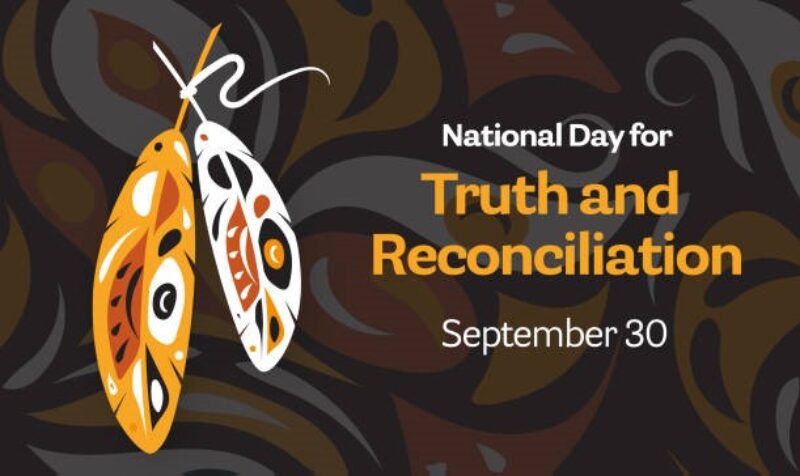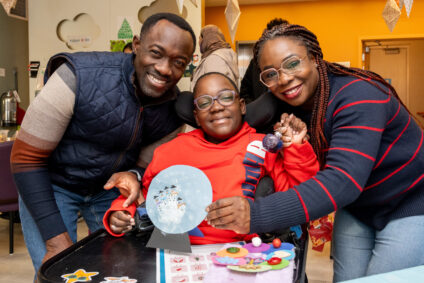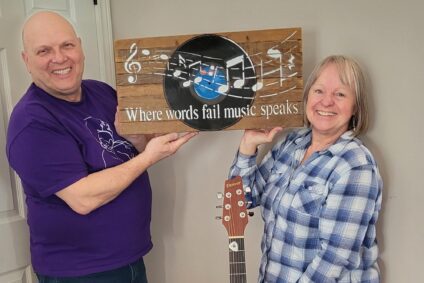Truth and Reconciliation: a message from our CEO

Truth and Reconciliation: a message from our CEO
Each year, September 30th marks the National Day for Truth and Reconciliation.
This day honours the children who never returned home and Survivors of residential schools, as well as their families and communities. Public commemoration of the tragic and painful history and ongoing impacts of residential schools is a vital component of the reconciliation process. It is also an opportunity to commit to the process of truth, justice and reconciliation with First Nations, Inuit and Métis in Toronto and across Canada.
This holiday was proposed in 2015 by the Truth and Reconciliation Commission of Canada, which under Action 80 called upon the federal government, in collaboration with Indigenous peoples, to establish a statutory holiday “to honour Survivors, their families, and communities, and ensure that public commemoration of the history and legacy of residential schools remains a vital component of the reconciliation process.”
Please take some time this weekend to reflect and honor the memory of so many children whose legacy has left lasting scars on the hearts of the indigenous peoples whose culture was brutally and ruthlessly stripped from them. We are all part of building a better and safer community, and a more caring and accepting Canada where every life matters and is valued; and where love, respect, humility, understanding, and forgiveness are the true north of our human compass directing us to a safe space of peace with one another.
What can I do?
Reconciliation is the responsibility of every Canadian. It means acknowledging the past and ensuring history never repeats itself by respecting Indigenous treaties and rights and letting go of negative perceptions and stereotypes to work towards solidarity. Below are resources you can reflect on that will help you work towards reconciliation in your own life and create your own personal reconciliation plan.
Educate yourself:
- Read the and the National Inquiry on Missing and Murdered Indigenous Women and Girls Calls for Justice
- Read the United Nations Declaration on the Rights of Indigenous Peoples
- Visit the National Centre for Truth and Reconciliation website
- Explore the Legacy of Hope Foundation ‘s online exhibitions and educational
- Resources about the history and effects of the residential school system, the Sixties Scoop , and the ongoing experiences Indigenous Peoples continue to face.
- Learn about residential schools and take a tour of former sites, such as those offered by the Woodland Cultural Centre
- Learn about Mohawk Village Memorial Park to honour the children who attended the Mohawk Institute Indian Residential School, which operated from 1834 to 1970
- Research First Nations, Inuit and Métis peoples in your area to understand their history and contributions to society – The Indigenous History of Tkaronto (via University of Toronto)
- We are all treaty people. Learn how you can honour treaties visit ontario.ca/page/treaties and native-land.ca
- Learn about the significance of land acknowledgements and learn the one in your area “Land acknowledgements: uncovering an oral history of Tkaronto ,” via Local Love
- Read the UNESCO’s proclamation of the International Decade of Indigenous Languages (2022 to 2032)
- Access the Indigenous Resource Guide curated by NSCC Libraries
- Explore Two Spirit and LGBTQIA Indigenous Resources (via University of Toronto Libraries)
- Watch an Awakenings short film: A Portrait in Red (A short film by Alexandra Lazarowich, 2020) covers the relocation of the Don Valley River and the impact of land extraction on the Indigenous peoples origins of Tkaronto; Reflections with Alex Lazarowich discusses missing and murdered Indigenous women and the impact of environmental disasters affecting natural resources for Indigenous people across Canada; Acknowledgment (A short film by Jonathan Elliott, 2020) and Reflections with Jonathan Elliott outline evolving land acknowledgments.


